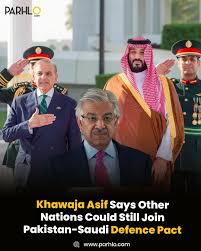Khawaja Asif: A Key Figure in Pakistani Politics

Introduction
Khawaja Asif, a senior figure in Pakistan’s political landscape, has been at the forefront of the country’s governance and political dynamics for decades. Currently serving as the Minister for Defense, his influence in both the Pakistan Muslim League-Nawaz (PML-N) party and broader national issues cannot be overstated. With Pakistan navigating through pivotal economic and security challenges, Asif’s leadership and decision-making are particularly relevant today.
Political Career and Achievements
Born on December 9, 1949, Khawaja Muhammad Asif is a seasoned politician from Lahore. He was first elected to Pakistan’s National Assembly in 1991 and has since held various key positions, including Minister for Water and Power and Minister for Foreign Affairs, reflecting his extensive experience in both domestic and international affairs. His recent appointment as Defense Minister came amidst rising tensions in the region, making his role increasingly significant in formulating defense strategies and international policy.
Asif’s influence extends beyond mere political maneuvering. He has been actively involved in legislative reforms, particularly focused on energy and infrastructure development, aiming to address Pakistan’s persistent energy crises. His advocacy for military and social welfare reforms has also earned him both praise and criticism across political divides.
Recent Developments
In recent months, Khawaja Asif has been vocal about the pressing issues facing Pakistan, including the economic fallout from global inflation and internal security threats. His statements regarding defense cooperation with allies and the need for a resilient strategy in the face of external challenges underline his strategic importance in the government.
Furthermore, as the government grapples with rising public dissatisfaction over economic conditions, Asif’s leadership has been crucial in proposing solutions aimed at stabilizing the economy. His recent headlines include dialogues with various stakeholders aimed at achieving consensus on urgent reforms to bolster Pakistan’s economic outlook.
Conclusion
Khawaja Asif remains a pivotal character in the narrative of Pakistan’s contemporary political scene. His experience in governance and his current position as the Minister for Defense indicate that he will continue to play a significant role in addressing both the internal and external challenges faced by Pakistan. As the landscape of political power evolves, observing Asif’s next moves may provide critical insights into the future direction of Pakistan’s policy and governance.









